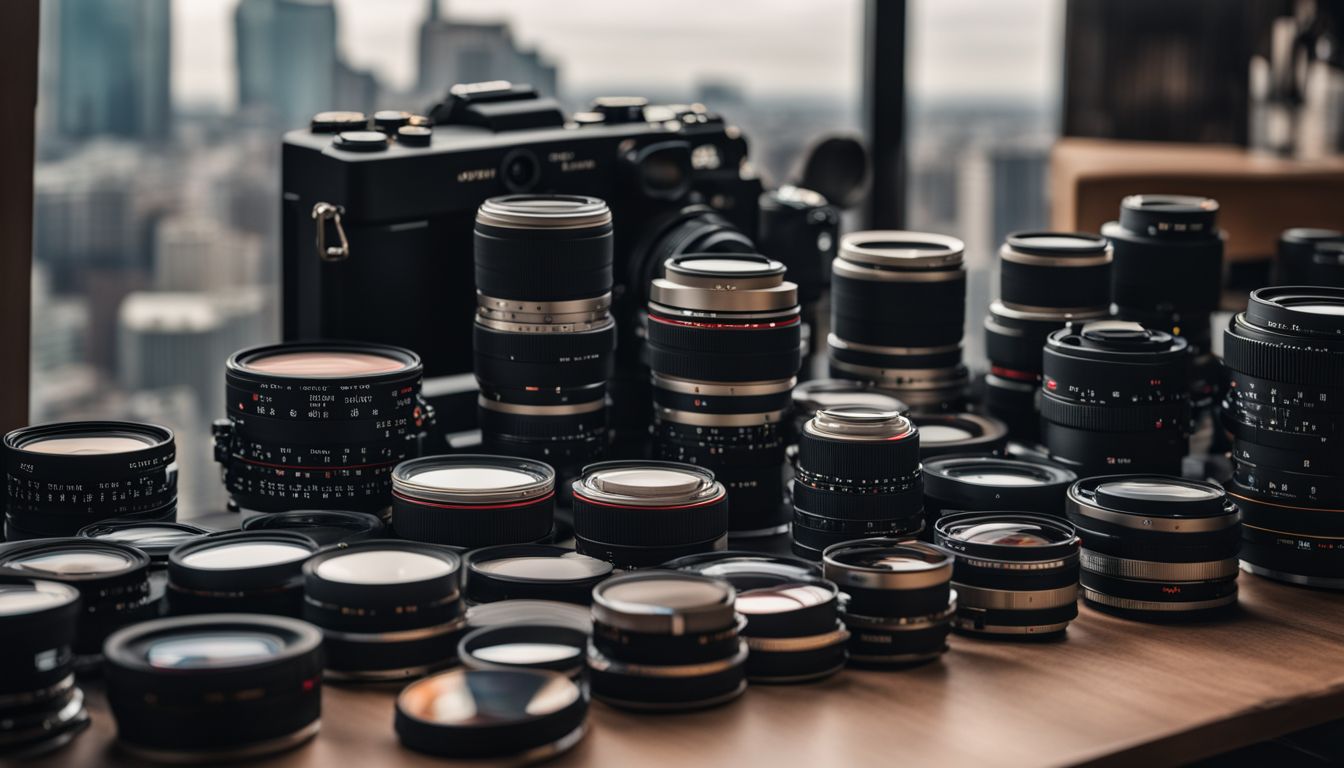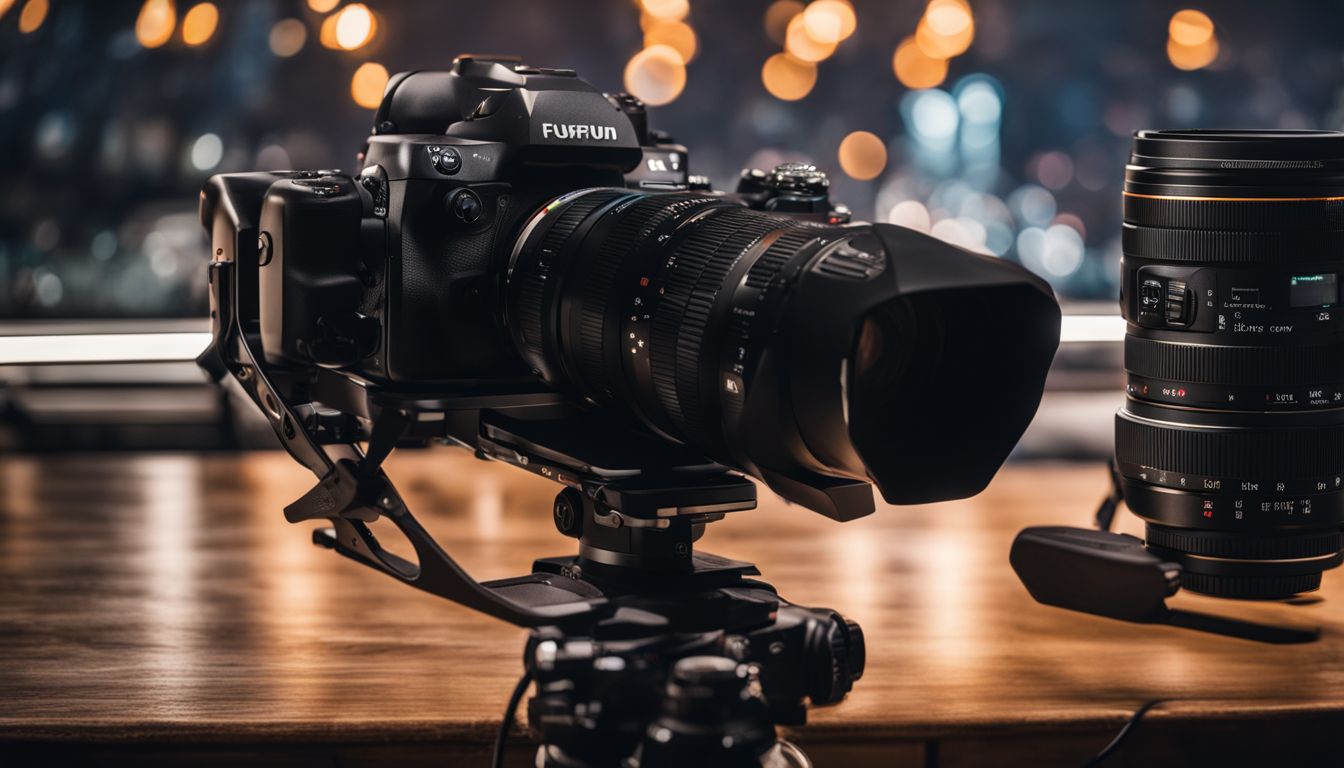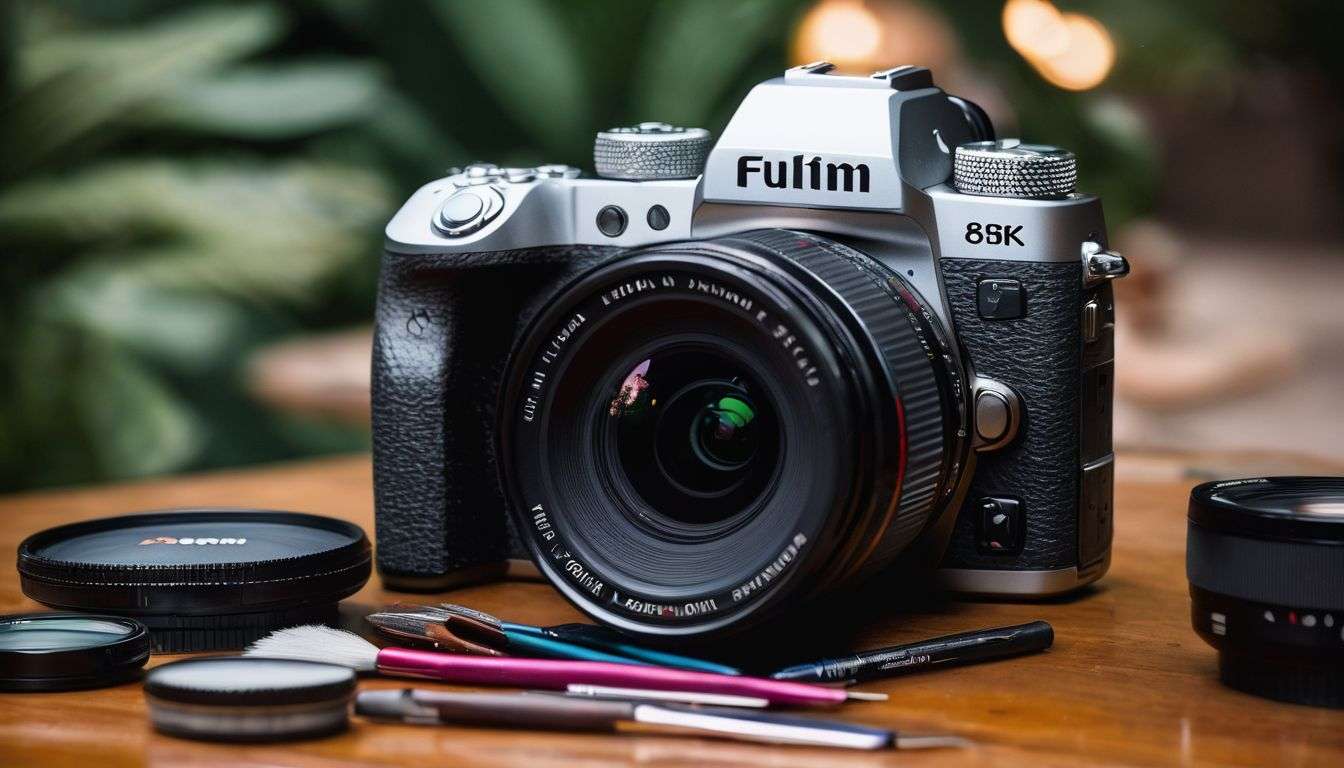Ever pondered the kind of personality traits common amongst professional videographers? You’re in good company. This question has piqued the curiosity of a fair few, particularly those contemplating a career in this inventive industry.
Research suggests that akin to artists, videographers possess unique characteristics that allow them to thrive and flourish in their craft. In this blog post, we’ll delve deeper into these defining traits and discuss how they contribute significantly to the success story of a videographer.
Join us as we unravel the essence of what makes one tick behind the lens!
Key Takeaways
- Videographers possess artistic and creative personalities, allowing them to bring fresh ideas and innovative storytelling techniques to their videos.
- They are detail – oriented individuals who pay close attention to small elements in order to capture the best shots and create visually stunning videos.
- Good communication skills are essential for videographers, as they need to understand clients’ visions and effectively convey their own ideas.
- Videographers must be flexible and adaptable, able to handle changes during shoots and find solutions to make each video great.
Personality Traits of Videographers

Videographers possess a range of personality traits that contribute to their success in the field. They are artistic and creative, detail-oriented, flexible and adaptable, have good communication skills, and are technically proficient.
Artistic and creative
Videographers need to be both artistic and creative. They use their minds to dream up fresh ideas. Then, they turn these dreams into amazing videos that tell stories in new ways. Just like artists, they must have a feel for what looks good.
Creativity is key in video work. It helps videographers stay one step ahead, always bringing something new and impressive to the table. A passion for creating and an artful eye are two of the most important things we bring with us when we pick up a camera!
Detail-oriented
Being detail-oriented is vital for a videographer. This means they pay close attention to small things. Every frame, every note of the sound, and every shift in light matters. It’s like being a sharp-eyed bird hunting for the best bits.
A keen eye for detail helps videographers catch moments that might seem small but are big on screen. They spot errors before they spoil a shot or film scene. Skill lies not just in good shots, but also in catching flaws early on!
Flexible and adaptable
Being flexible and adaptable is key for a videographer. Changes often happen during the shoot. The weather may change, or the client might want something else. We take these changes in stride and find solutions to make the video great.
It helps us keep calm under pressure too. Being able to adapt also means we can work on many kinds of projects, which makes our job exciting!
Good communication skills
Talking and listening well is key for a videographer. They need to understand what their client wants. They have to ask the right questions. With clear words, they explain their ideas too.
Good talks help them work well with others on their team. It makes sure everyone knows what to do at every step of making a video.
Technical proficiency
Videographers need good technical skills. They must know how to use cameras, sound equipment, and editing tools. This helps them capture great shots and make top-quality videos. Learning about these tools takes time and practice.
Yet, it is a key part of the job for any filmmaker or video editor. The world of film technology changes fast. So videographers always work to stay up-to-date on the latest tech progress in their field.
Essential Skills a Videographer Should Have
 Being a videographer takes more than just liking to film. Here are some skills you need:
Being a videographer takes more than just liking to film. Here are some skills you need:
- The first skill you need is creativity. You have to think of new ways to tell a story or send a message.
- An eye for detail is also crucial. This means finding the right shots and angles.
- They should be able to work alone. Being independent lets them make their ideas come alive.
- Patience and focus help too, especially when they have to edit films for many hours.
- A good videographer needs a deep sense of art. This helps them know what looks good on camera.
- They also need lots of energy and drive as they often have many tasks and tight deadlines.
The Importance of Personality Traits in Videography
Personality traits play a crucial role in videography as they enhance creativity, build client relationships, and enable collaboration with other professionals.
Enhances creativity and storytelling
Videographers weave tales with images. They use their creativity to bring great stories to life. Their work shows a strong artistic side and unmatched storytelling skill. This is why we see passion, eye for detail, and an innovative mind in them.
Strong traits like openness also help videographers be more creative. It lets them think of new ideas without fear or worry. With this, they make films that no one has ever seen before! Exploring different ways of telling a story keeps their work fresh and exciting too.
Builds client relationships
Building strong client relationships is a crucial aspect of being a videographer. We understand the importance of connecting with clients on a personal level to truly understand their vision and needs.
By establishing trust and open communication, we can ensure that our clients feel heard and valued throughout the entire video production process. This not only leads to more successful collaborations but also encourages repeat business and positive referrals.
Our focus is always on delivering high-quality work while providing exceptional customer service, cultivating long-lasting relationships with our clients.
Enables collaboration with other professionals
Collaboration with other professionals is a crucial aspect of being a videographer. It allows us to combine our creative vision and technical expertise with the skills of others, such as directors, producers, and editors.
By working together, we can bring different perspectives and ideas to the table, resulting in a more cohesive and high-quality final product. Collaboration also helps us learn from each other and improve our craft.
We value input from others because it strengthens our work and enables us to create impactful videos that resonate with audiences.
How Personality Traits Impact Videography Success
Personality traits such as the ability to handle pressure and deadlines, problem-solving skills, attention to detail and organization, and adaptability to different work environments are crucial for videography success.
Read on to discover how these traits can make a significant difference in the world of videography.
Ability to handle pressure and deadlines
Videographers need to have the ability to handle pressure and meet deadlines. They often work on multiple projects simultaneously, which can be demanding and require them to stay focused and organized.
Deadlines are crucial in the video production industry, as clients expect their videos to be delivered on time. Videographers must effectively manage their time, prioritize tasks, and remain calm under pressure in order to complete projects within schedule.
This requires strong organizational skills and the ability to work efficiently even when faced with tight deadlines or unexpected challenges.
Problem-solving skills
Problem-solving skills are essential for videographers. They face various challenges during video production and editing, and being able to think critically and find creative solutions is crucial.
Whether it’s troubleshooting technical issues, adapting to changing circumstances on set, or finding ways to enhance the visual storytelling, problem-solving skills help videographers overcome obstacles and deliver high-quality work.
With their ability to analyze problems, come up with innovative ideas, and make quick decisions, videographers ensure that projects stay on track and meet client expectations.
Attention to detail and organization
Videographers need to have a strong attention to detail and be highly organized. They must carefully plan and prepare for each shoot, ensuring that all the necessary equipment is in place and ready to use.
This includes setting up cameras, lights, and audio equipment correctly. During filming, they need to pay close attention to every aspect of the scene, making sure that everything looks perfect on camera.
In post-production, they meticulously edit the footage, paying attention to small details like color correction and sound quality. Being organized helps videographers stay on top of their projects and meet deadlines effectively.
Adaptability to different work environments
Videographers need to be adaptable to different work environments. They often have to shoot in various locations, such as outdoor settings or crowded indoor spaces. Being able to adjust quickly and find creative solutions is crucial in these situations.
Whether it’s dealing with changing lighting conditions or unexpected challenges, videographers must be flexible and resourceful. This adaptability allows them to capture the best shots and deliver high-quality content no matter the circumstances.
It also reflects their ability to think on their feet and handle any unforeseen obstacles that may arise during a production.
Conclusion
In conclusion, videographers have a unique personality that combines creativity, attention to detail, adaptability, and good communication skills. They are passionate storytellers, with the ability to bring ideas to life through film and video.
Their dedication and drive allow them to thrive in a fast-paced industry where they constantly strive for excellence in their work.
What Skills and Knowledge Are Required to Succeed in Videography?
To succeed in videography, a combination of technical skills and creative knowledge is essential. Mastering camera techniques, such as composition, lighting, and focusing, is vital. Understanding concepts like shot types, framing, and storytelling enhance the visual narrative. Additionally, post-production skills, like video editing and color grading, play a significant role. Staying updated on videography tips and tricks will ensure continuous improvement and innovation in the field.
Are the Skills and Personality Traits Needed for Cinematography and Videography Similar?
The difference between cinematographer and videographer lies in their roles and technical expertise. While both require creativity and an artistic eye, cinematographers usually work on film productions, utilizing specialized equipment and collaborating closely with directors. Videographers, on the other hand, focus more on capturing events or creating promotional content, often using simpler gear and requiring less extensive training. Ultimately, although related, the skills and personality traits needed for cinematography and videography can vary due to the divergent demands of these two roles.
FAQs
1. What type of personality does a videographer have?
A videographer typically has a creative and detail-oriented personality, with good communication skills and the ability to work well under pressure.
2. Is being patient important for a videographer?
Yes, patience is important for a videographer as they often need to wait for the right moment to capture the perfect shot or scene.
3. Do videographers need technical knowledge?
Yes, videographers need technical knowledge in areas such as camera operation, lighting techniques, and video editing software to produce high-quality videos.
4. Can introverted individuals become successful videographers?
Yes, introverted individuals can become successful videographers as long as they are comfortable working independently and enjoy expressing themselves through visuals rather than direct interaction with others.
5. Are problem-solving skills important for a videographer?
Yes, problem-solving skills are important for a videographer as they may encounter challenges during filming or editing that require quick thinking and creative solutions.






